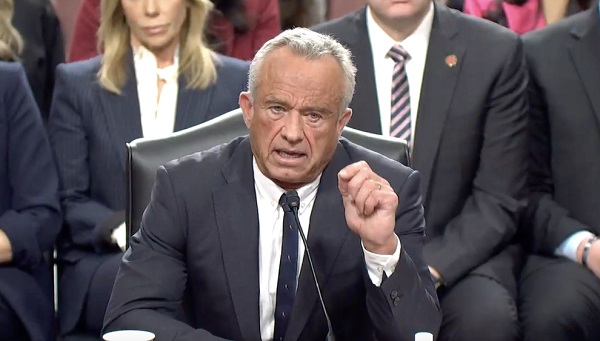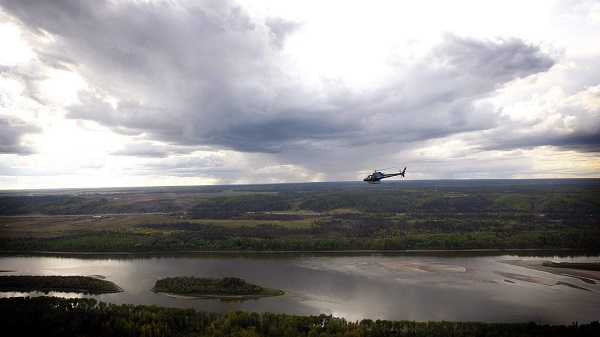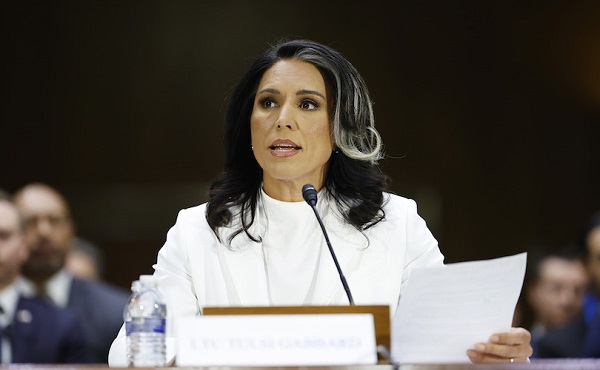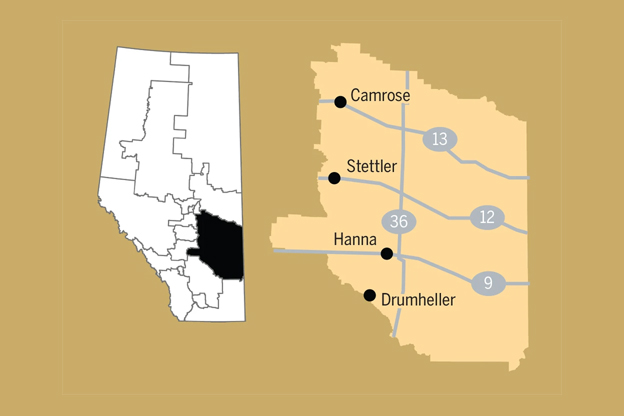Uncategorized
Long, tortured road to Trump’s answers for special counsel

WASHINGTON — The date had been picked, the location too, and the plan was penciled in: President Donald Trump would be whisked from the White House to Camp David on a quiet winter Saturday to answer questions from special counsel Robert Mueller’s team.
But as the Jan. 27, 2018, date neared and Mueller provided the topics he wanted to discuss, Trump’s lawyers balked. Attorney John Dowd then fired off a searing letter disputing Mueller’s authority to question the president. The interview was off.
Nearly a year later, Trump has still not spoken directly to Mueller’s team — and may never. Through private letters, tense meetings and considerable public posturing, the president’s lawyers have engaged in a tangled, tortured back-and-forth with the special counsel to prevent the president from sitting down for a face-to-face with enormous political and legal consequences.
The prolonged negotiation speaks to the high stakes for Trump, Mueller’s investigation of his campaign and the presidency. Any questioning of a president in a criminal investigation tests the limit of executive authority. Putting this president on the record also tests his ability to stick to the facts and risks a
The process took a significant step forward this week when Trump’s lawyers handed over the president’s written answers to some of Mueller’s questions. The arrangement was a hard-fought compromise. Trump answered only questions about Russian interference in the 2016 election and not questions about whether he has tried to obstruct the broader investigation into potential
Special counsel spokesman Peter Carr declined comment.
Even those written answers were months in the making.
In the months following Mueller’s May 2017 appointment, the White House pledged its
But it soon became clear that Mueller would want to interview Trump, given his involvement in several events under scrutiny. The president had fired FBI Director James Comey, harangued his attorney general over his recusal from the Russia investigation and dictated a misleading statement about a Trump Tower meeting involving his son and a Kremlin-connected lawyer.
But Trump lawyers Dowd and Jay Sekulow moved cautiously.
The last time a president is known to have been interviewed in a criminal investigation was nearly 15 years ago, and a commander-in-chief has not been subpoenaed before a grand jury since 1998, when President Bill Clinton was summoned in the Whitewater case. Trump’s lawyers were mindful such an interview would be a minefield for a president who often misstates the facts. They set out to avoid it however possible, even if it could lead to resisting a subpoena and bringing on a court fight over presidential power.
But first they tried to head off a request. Trump’s lawyers staked out a bold
At the same time, they worked to undermine Mueller’s case should he choose to challenge that argument. They furnished a trove of White House documents about key moments in the investigation in hopes of undercutting any claim that he could only get the information he needed by questioning Trump, according to people familiar with the strategy.
Trump had other plans.
As his lawyers plotted to dig in against any interview, he pushed for one, believing it would exonerate him. In January, he burst into a reporters’ briefing with chief of staff John Kelly and insisted he was eager to speak to Mueller. He might do so in weeks, he said, “subject to my lawyers and all of that.”
“I would love to do that — I’d like to do it as soon as possible,” Trump said.
What he didn’t mention was that his attorneys had already discussed, and scuttled, the planned interview with Mueller. That process had even progressed to discussing logistics with Kelly, who advised of ways White House officials could get people in and out of the building without the press knowing.
But the interest cooled after Mueller team prosecutor James Quarles dictated over the phone 16 topics Mueller wanted to cover, including Trump’s interactions with Comey, his knowledge of national security adviser Michael Flynn’s interview with the FBI and his involvement in the Trump Tower statement. Dowd responded that the answers could all be found in documents and witness statements provided to Mueller. He then
The investigation has been “a considerable burden for the president and his office, has endangered the safety and security of our country, and has interfered with the president’s ability to both govern domestically and conduct foreign affairs,” Dowd wrote.
In the following months, Trump told some of his closest confidants that he still wanted to interview with Mueller, according to four White House officials and Republicans close to the White House who asked for anonymity because they were not permitted to publicly discuss private conversations. The president repeatedly insisted he had done nothing wrong and believed he could convince Mueller of that.
He told one confidant last spring he was frustrated his lawyers didn’t believe he should do it and snapped that he didn’t understand what was taking so long, according to one Republican in contact with the White House.
Tensions were on display at a March meeting where Dowd and Sekulow met with Mueller to discuss the need for an interview. Mueller said he needed to know if Trump had a “corrupt intent” when he fired Comey, such as by intending to stymie the investigation, according to a person familiar with the encounter. Dowd responded that the question was ridiculous and the answer was obviously no. Investigators at the same meeting raised the prospect of a subpoena if Trump didn’t
Later that month, Mueller’s team produced its most detailed list of questions yet — dozens, in different categories from Trump’s time as a candidate, through the transition period and into his presidency.
Trump’s own views soon began to shift. He had his first misgivings in mid-April after FBI raids on his personal lawyer Michael Cohen, thinking they were a sign that he could “not trust” Mueller, according to one of the Republicans close to Trump who spoke with the AP.
As Rudy Giuliani joined Trump’s legal team in April, the White House settled into a new strategy: Drag out the interview drama for months, and use that time to ratchet up attacks on Mueller’s credibility and complaints about the cost and time of the probe, according to the officials and advisers familiar with the strategy.
Giuliani led the charge. His scattershot arguments sometimes frustrated others in the White House, as he frequently moved the goalposts as to what would be required to have an interview. But the effect was to ensure the process would drag out longer.
Trump, meanwhile, continued complaining about the investigation even as his lawyers quietly negotiated acceptable interview terms.
A key breakthrough occurred earlier this fall when Mueller’s team said it would accept written answers on Russian election interference and collusion. The concession ensured that Mueller would get at least some on-the-record response from Trump. Prosecutors tabled questions about obstruction, reserving the right to return to that area later.
Giuliani seemed to foreclose future dialogue Tuesday, saying, “It is time to bring this inquiry to a conclusion.”
Whether Mueller agrees is a different story.
Eric Tucker, Chad Day And Jonathan Lemire, The Associated Press
Uncategorized
Poilievre on 2025 Election Interference – Carney sill hasn’t fired Liberal MP in Chinese election interference scandal

From Conservative Party Communications
“Yes. He must be disqualified. I find it incredible that Mark Carney would allow someone to run for his party that called for a Canadian citizen to be handed over to a foreign government on a bounty, a foreign government that would almost certainly execute that Canadian citizen.
“Think about that for a second. We have a Liberal MP saying that a Canadian citizen should be handed over to a foreign dictatorship to get a bounty so that that citizen could be murdered. And Mark Carney says he should stay on as a candidate. What does that say about whether Mark Carney would protect Canadians?
“Mark Carney is deeply conflicted. Just in November, he went to Beijing and secured a quarter-billion-dollar loan for his company from a state-owned Chinese bank. He’s deeply compromised, and he will never stand up for Canada against any foreign regime. It is another reason why Mr. Carney must show us all his assets, all the money he owes, all the money that his companies owe to foreign hostile regimes. And this story might not be entirely the story of the bounty, and a Liberal MP calling for a Canadian to be handed over for execution to a foreign government might not be something that the everyday Canadian can relate to because it’s so outrageous. But I ask you this, if Mark Carney would allow his Liberal MP to make a comment like this, when would he ever protect Canada or Canadians against foreign hostility?
“He has never put Canada first, and that’s why we cannot have a fourth Liberal term. After the Lost Liberal Decade, our country is a playground for foreign interference. Our economy is weaker than ever before. Our people more divided. We need a change to put Canada first with a new government that will stand up for the security and economy of our citizens and take back control of our destiny. Let’s bring it home.”
Uncategorized
Canada Needs A Real Plan To Compete Globally

From the Frontier Centre for Public Policy
Ottawa’s ideological policies have left Canada vulnerable. Strategic action is needed now
As Canada navigates an increasingly complex geopolitical landscape, the next federal government must move beyond reflexive anti—Americanism regardless of its political leanings. Instead, Canada should prioritize national interests while avoiding unnecessary conflict and subservience.
The notion that Canada can stand alone is as misguided as the idea that it is only an economic appendage of the United States. Both perspectives have influenced policy in Ottawa at different times, leading to mistakes.
Rather than engaging in futile name-calling or trade disputes, Canada must take strategic steps to reinforce its autonomy. This approach requires a pragmatic view rooted in Realpolitik—recognizing global realities, mitigating risks, governing for the whole country, and seizing opportunities while abandoning failed ideologies.
However, if Washington continues to pursue protectionist measures, Canada must find effective ways to counteract the weakened position Ottawa has placed the country in over the past decade.
One key strategy is diversifying trade relationships, notably by expanding economic ties with emerging markets such as India and Southeast Asia. This will require repairing Canada’s strained relationship with India and regaining political respect in China.
Unlike past Liberal trade missions, which often prioritized ideological talking points over substance, Canada must negotiate deals that protect domestic industries rather than turning summits into platforms for moral posturing.
A more effective approach would be strengthening partnerships with countries that value Canadian resources instead of vilifying them under misguided environmental policies. Expand LNG exports to Europe and Asia and leverage Canada’s critical minerals sector to establish reciprocal supply chains with non-Western economies, reducing economic reliance on the U.S.
Decades of complacency have left Canada vulnerable to American influence over its resource sector. Foreign-funded environmental groups have weakened domestic energy production, handing U.S. industries a strategic advantage. Ottawa must counter this by ensuring Canadian energy is developed at home rather than allowing suppressed domestic production to benefit foreign competitors.
Likewise, a robust industrial policy—prioritizing mining, manufacturing, and agricultural resilience—could reduce dependence on U.S. and Chinese imports. This does not mean adopting European-style subsidies but rather eliminating excessive regulations that make Canadian businesses uncompetitive, including costly domestic carbon tariffs.
Another key vulnerability is Canada’s growing military dependence on the U.S. through NORAD and NATO. While alliances are essential, decades of underfunding and neglect have turned the Canadian Armed Forces into little more than a symbolic force. Canada must learn self-reliance and commit to serious investment in defence.
Increasing defence spending—not to meet NATO targets but to build deterrence—is essential. Ottawa must reform its outdated procurement processes and develop a domestic defence manufacturing base, reducing reliance on foreign arms deals.
Canada’s vast Arctic is also at risk. Without continued investment in northern sovereignty, Ottawa may find itself locked out of its own backyard by more assertive global powers.
For too long, Canada has relied on an economic model that prioritizes federal redistribution over wealth creation and productivity. A competitive tax regime—one that attracts investment instead of punishing success—is essential.
A capital gains tax hike might satisfy activists in Toronto, but it does little to attract investments and encourage economic growth. Likewise, Ottawa must abandon ideological green policies that threaten agri-food production, whether by overregulating farmers or ranchers. At the same time, it must address inefficiencies in supply management once and for all. Canada must be able to feed a growing world without unnecessary bureaucratic obstacles.
Ottawa must also create an environment where businesses can innovate and grow without excessive regulatory burdens. This includes eliminating interprovincial trade barriers that stifle commerce.
Similarly, Canada’s tech sector, long hindered by predatory regulations, should be freed from excessive government interference. Instead of suffocating innovation with compliance mandates, Ottawa should focus on deregulation while implementing stronger security measures for foreign tech firms operating in Canada.
Perhaps Ottawa’s greatest mistake is its knee-jerk reactions to American policies, made without a coherent long-term strategy. Performative trade disputes with Washington and symbolic grandstanding in multilateral organizations do little to advance Canada’s interests.
Instead of reacting emotionally, Canada must take proactive steps to secure its economic, resource, and defence future. That is the role of a responsible government.
History’s best strategists understood that one should never fight an opponent’s war but instead dictate the terms of engagement. Canada’s future does not depend on reacting to Washington’s policies—these are calculated strategies, not whims. Instead, Canada’s success will be determined by its ability to act in the interests of citizens in all regions of the country, and seeing the world as it is rather than how ideological narratives wish it to be.
Marco Navarro-Génie is the vice president of research at the Frontier Centre for Public Policy. With Barry Cooper, he is co-author of Canada’s COVID: The Story of a Pandemic Moral Panic (2023).
-

 COVID-192 days ago
COVID-192 days agoStudy finds nearly half of ‘COVID deaths’ had no link to virus
-

 2025 Federal Election1 day ago
2025 Federal Election1 day agoCarney says Liberals won’t make voting pact with NDP
-

 Autism1 day ago
Autism1 day agoNIH, CMS partner on autism research
-

 Alberta2 days ago
Alberta2 days agoEnergy projects occupy less than three per cent of Alberta’s oil sands region, report says
-

 Energy2 days ago
Energy2 days agoOil tankers in Vancouver are loading plenty, but they can load even more
-

 International2 days ago
International2 days agoIce Surprises – Arctic and Antarctic Ice Sheets Are Stabilizing and Growing
-

 Alberta2 days ago
Alberta2 days agoCharges laid in record cocaine seizure
-

 Business1 day ago
Business1 day agoInnovative Solutions Like This Plan To Provide Power For Data Centres Will Drive Natural Gas Demand For Decades






